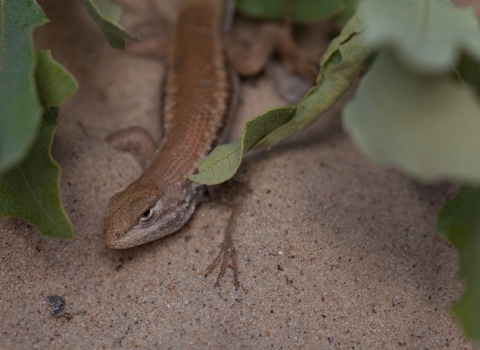One female wolf will go to the Campbell Blue pen to become accustomed to the area now occupied by the Hawks= Nest pack, which currently has only three males. Biologists hope the Hawks Nest wolves will be attracted by the presence of the female, allowing the animals to become acquainted before she is released from the pen. The alpha female originally released with this pack has not been observed since mid-September, and biologists believe she is dead.
The other female will go to the Engineer Springs site as a mate for the Campbell Blue male. Project personnel will attempt to capture this male, who has been moving about extensively since his mate was illegally killed in early August. He and his new mate will be placed in the Engineer Springs pen after a deer hunt in the area closes on November 15. Closures of no more than a 1-mile radius will be in effect during the time that wolves occupy the pens. After a few weeks, the pair will be released in the new area and closures will be lifted.
"The four remaining wild males are extremely valuable animals," said David Parsons, Mexican Wolf Recovery Leader. "They have learned how to survive in the wild, are hunting wild prey, and have not killed any livestock. It is critical that we provide them an opportunity to find mates and reproduce."



